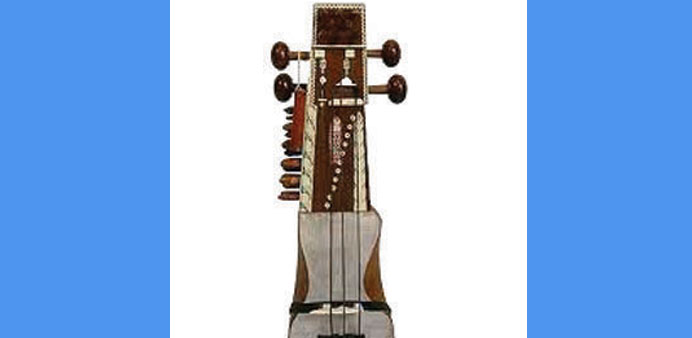By Pratibha Tuladhar, DPA/Kathmandu
Growing up in a Gandharva family of troubadours, Kiran Nepali started playing the traditional stringed instrument, the sarangi, as a child.
But his father put it away, telling him to complete his education and get a clerical job instead.
“My father felt he had been unsuccessful because of his family profession and wanted me to do something else with my life,” says Kiran.
So, even as he watched the men around him dedicate themselves to playing the sarangi and singing traditional songs, Kiran took up the guitar.
The Gandharvas travel around the country to sing about love, life, society, suffering and politics, in exchange for small rewards of money and gifts. Regarded as “untouchable” Dalits in the Hindu caste system, they are often subjected to poor treatment and mired in poverty.
“When I finished high school, I was very disturbed because we were not well-off financially and I had to drop college to start working as a guitar teacher in schools,” recalls Kiran, whose father played the sarangi for tourists to eke out a living.
It was only when he watched relatives learning from his father that he decided to play the instrument himself, because he felt he could do better than them.
“My mother found me a sarangi and I started to teach myself in secret,” he says, pointing at his short-necked instrument, resembling a squat, open-faced violin, carved from a light wooden block.
“The instrument was associated with shame for us in the past because it told the world that we’re Dalits, and gave people an excuse to treat us badly,” he explains.
But that has changed, as Kiran has gone on to play and teach internationally since joining Kutumba, a performing group dedicated to reviving folk music.
He renovated his instrument, designing a larger body and using guitar strings instead of the traditional goat gut, to enhance its stage performance sound. He also fashioned a stand for it so he can play standing up.
The other Gandharvas who make a living singing on the streets and in the villages still play the instrument in its traditional form, sometimes using badminton racquet strings instead of the traditional gut.
The sarangi has changed the life of Barta Gandarva, the first woman to play the instrument professionally in a community where women were forbidden to do so.
“I took up the instrument because of poverty,” she smiles. “My father disappeared from our lives when I was eight and my mother was pregnant. The only thing that came to my mother’s mind was for me to play the sarangi.
“So, with her in tow, I literally begged so that I could feed our family,” says Barta, who has become a renowned artist.
At first, Barta sang songs she had heard on the radio, but she eventually went on to compose her own music and lyrics.
Every Gandarva has his own song, often composed impromptu.
“The sun’s too hot and the moon is too cold, You’re not here and there’s no one to love me, I didn’t want to leave the country...”
Rambahadur Gandarva sings, crouching on the ground, the sarangi balanced between his knees. His life is still like one of his ancestors, moving from one village to another, composing songs in passing, telling stories.
But he knows theirs is a disappearing act. His son has not learned his craft, and makes a living by growing subsistence crops.
“This is the world of TV and mobile phones,” Rambahadur says. “People don’t want to listen to our songs anymore. And most of the youngsters are ashamed to play because they do not want to be called low-caste.”
Some Gandharvas have joined the bandwagon of the many Nepalis who leave the country for jobs abroad. But most toil as day labourers.
“It’s true that people have shown me more respect since I became a teacher, but it’s still a hard journey to keep this going,” says Barta, who teaches at the Nepal Music Centre and has taught in Adger University, Norway.
She now has Brahmin students - considered one of the highest castes - which gives her hope that the instrument may yet find a new life.
Kiran says the whole idea is to change the way people see the instrument.
“The Gandharvas were like the newsmen in the past, the source of information for people as well as entertainers,” he says. “But they had to change professions because they never made enough money to provide for their families.

